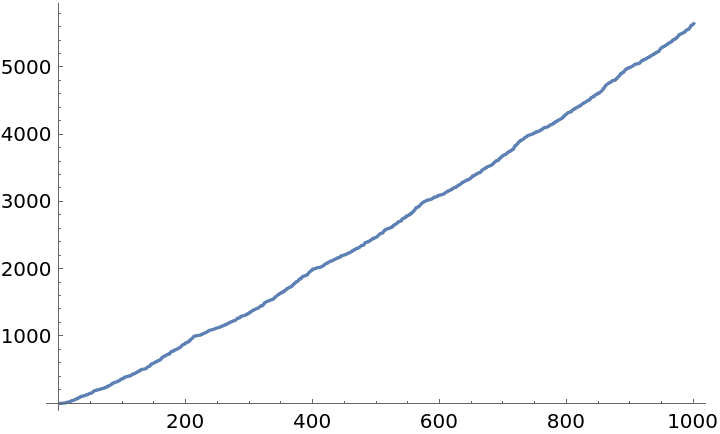Wolfram Function Repository
Instant-use add-on functions for the Wolfram Language
Function Repository Resource:
Test if a number is a harshad number
Test if 2023 is a harshad number:
| In[1]:= |
| Out[1]= |
Test another number:
| In[2]:= |
| Out[2]= |
Test a list of numbers:
| In[3]:= |
| Out[3]= |
Give the base explicitly:
| In[4]:= |
| Out[4]= |
Use a different base:
| In[5]:= |
| Out[5]= |
Base 0 cannot be computed:
| In[6]:= |
| Out[6]= |
Base 1 cannot be computed:
| In[7]:= |
| Out[7]= |
The number 0 cannot be divided by itself:
| In[8]:= |
| Out[8]= |
12 is a harshad number in multiple bases:
| In[9]:= |
| Out[9]= |
12 is not an 8-harshad number:
| In[10]:= |
| Out[10]= |
The number 2016502858579884466176 is a multiple harshad number:
| In[11]:= | ![NestWhileList[
Quotient[#, Total[IntegerDigits[#]]] &, 2016502858579884466176, ResourceFunction[
"HarshadNumberQ", ResourceSystemBase -> "https://www.wolframcloud.com/obj/resourcesystem/api/1.0"][#] && # > 1 &, 1, \[Infinity], -1]](https://www.wolframcloud.com/obj/resourcesystem/images/7ab/7ab7f164-e84e-4bff-9df5-da129ee50387/7425301588a5ad12.png) |
| Out[11]= |
| In[12]:= |
| Out[12]= |
Find the first 1000 harshad numbers and visualize them:
| In[13]:= |
| Out[14]= |  |
All numbers up to 10000 are either a harshad number or the sum of two harshad numbers:
| In[15]:= | ![max = 10000;
hnh = GroupBy[Range[max], ResourceFunction[
"HarshadNumberQ", ResourceSystemBase -> "https://www.wolframcloud.com/obj/resourcesystem/api/1.0"]];
AllTrue[hnh[False], ContainsAny[# - hnh[True], hnh[True]] &]](https://www.wolframcloud.com/obj/resourcesystem/images/7ab/7ab7f164-e84e-4bff-9df5-da129ee50387/470418334ee45017.png) |
| Out[17]= |
The first factorial that is not a harshad number is 432:
| In[18]:= |
| Out[18]= |
This work is licensed under a Creative Commons Attribution 4.0 International License